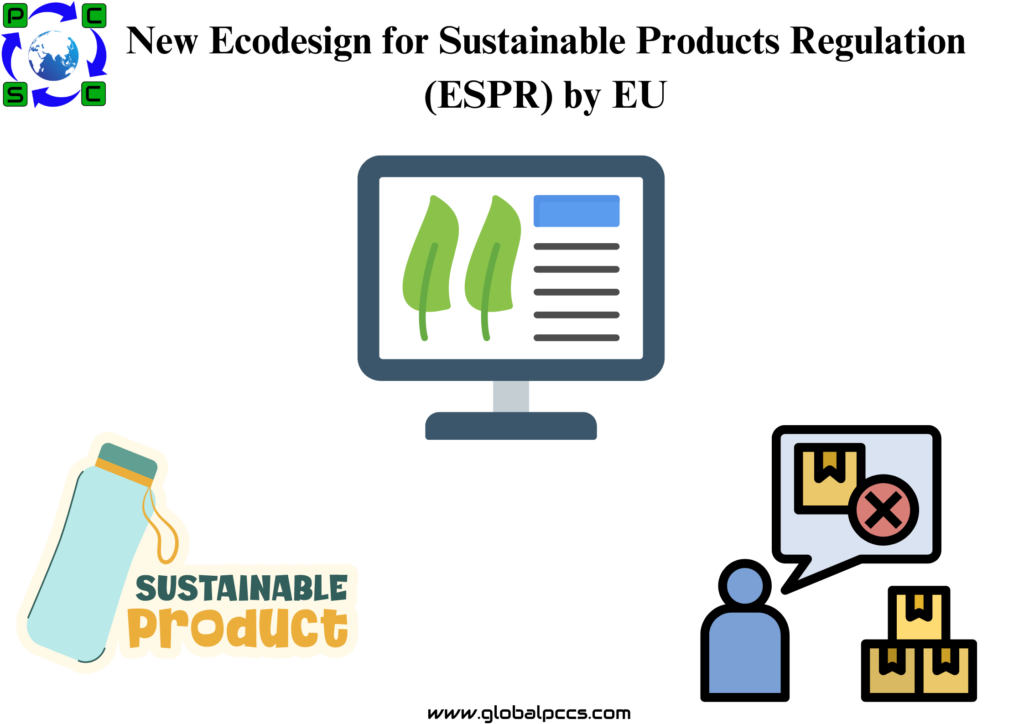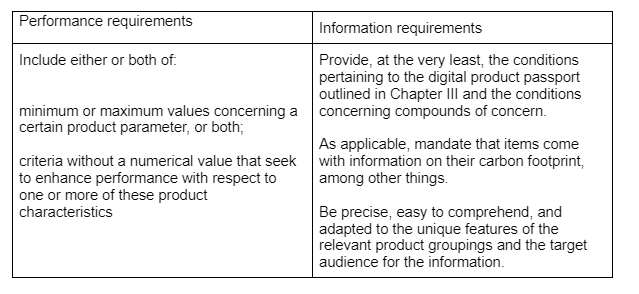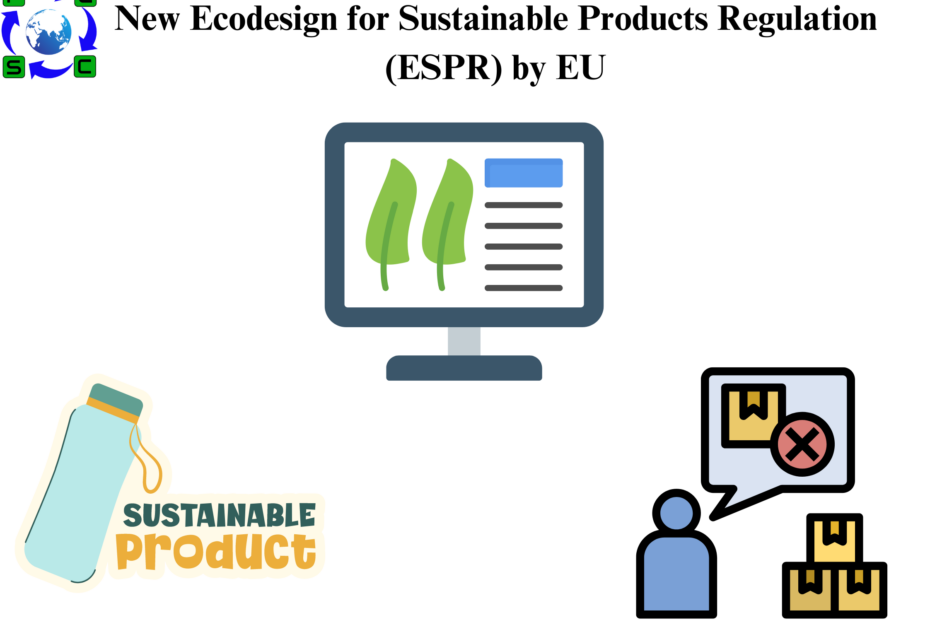 The Ecodesign for Sustainable Products Regulation (ESPR), also known as Regulation (EU) 2024/1781, was implemented by the European Union (EU) on June 28, 2024. A foundation for establishing eco-design specifications for sustainable products is established by this law. In line with the goals of the European Green Deal, it seeks to advance product sustainability and support a clean, circular economy.
The Ecodesign for Sustainable Products Regulation (ESPR), also known as Regulation (EU) 2024/1781, was implemented by the European Union (EU) on June 28, 2024. A foundation for establishing eco-design specifications for sustainable products is established by this law. In line with the goals of the European Green Deal, it seeks to advance product sustainability and support a clean, circular economy.
The present Ecodesign Directive 2009/125/EC, which is restricted to energy-related items, will be replaced by the new ESPR twenty days after it is published. The new ESPR now covers a broad spectrum of physical commodities, regardless of whether they are made inside or outside of the EU, including components and intermediary items. Food, feed, medical goods, live plants, animals, and microbes, items of human origin, plant and animal products directly connected to their future reproduction, and certain vehicles as listed in Article 1 of the rule are among the categories that are not included.
Key Content of ESPR
- General ecodesign requirements
A set of broad ecodesign rules is created under the ESPR, with which items must comply before going on sale or entering service. Article 4 of this Regulation grants the European Commission the power to amend it by adopting delegated acts that establish rules for ecodesign in order to enhance a variety of product attributes, including longevity, dependability, recyclability, recycled content, and environmental effect. Ecodesign standards should incorporate one or both of the needs listed in Table 1 in order to enhance the specific product characteristics. The framework will also enable the establishment of horizontal regulations for product groupings that have a sufficient number of similar traits. The criteria that correspond differ from those in Table 1.
Table 1: Requirements that shall be included in the ecodesign

The ESPR establishes a prioritized system for regulating particular product groupings in order to guarantee successful implementation. items including iron and steel, aluminum, textiles, furniture, tires, paints, lubricants, chemicals, energy-related items, and products relating to information and communication technology will be given priority when it comes to the Commission’s ecodesign regulations.
- Requirements for digital product passports
One essential component of the ESPR, a product passport, should be required, as shown in Table 1’s information requirements. This Regulation specifies additional standards for the digital product passport, including:
- An exclusive product identification should be connected to the product passport;
- A digital product passport register should be established and maintained by the Commission to house such information;
- Following the establishment of the register by the Commission, the EU Single Window Environment shall provide direct access to the registry for customs officials to confirm the existence of a digital product passport for imported goods;
- When a digital product passport is offered, the necessary data must be included in it as well as in one or more of the formats listed in Article 7, Paragraph 7, which may include the product itself, its packaging, a label, etc.
- Label
The regulation makes it clear that goods with labels that could mislead or confuse consumers—such as labels that resemble those listed in Article 16—or with any other misleading information about those labels—must not be placed on the market or used in any capacity. It should be emphasized, therefore, that as long as the standards set forth by the EU Ecolabel and other legally recognized ecolabels are just as strict as the ecodesign requirements, they will not be seen as deceptive or confusing designations.
- Unsold consumer products
Economic operators must, to the extent that it is practically possible, put suitable procedures in place to avoid the destruction of unsold consumer goods. Destruction of unsold consumer garments, accessories, and footwear as mentioned in Annex VII will be outlawed as of July 19, 2026. Micro and tiny businesses are not subject to this regulation. Effective July 19, 2030, it covers medium-sized businesses
- Enterprises obligation
There are defined roles and responsibilities for each party. Manufacturers, for example, are subject to specific requirements, such as:
- Making certain that the items meet the performance standards in terms of design and manufacturing.
- Making certain that the items come with the relevant documentation, as mandated by Article 7 and the delegated acts issued under Article 4.
- guaranteeing the accessibility of a digital product passport in accordance with Article 9 and other delegated legislation.
According to the Regulation, it is the duty of manufacturers, who have in-depth knowledge of the design and manufacturing processes, to organize or carry out the relevant conformity assessment method. The maker of a product covered by a delegated act is required to prepare an EU declaration of conformity if the product satisfies the applicable requirements through that method.
If a product does not meet the ecodesign standards outlined in the delegated acts, the following economic operators will be responsible for any harm the customer may experience:
- the producer; or
- if the maker is not a resident of the Union, the importer or the manufacturer’s authorized agent, without regard to its own liability; alternatively,
- If the manufacturer’s authorized agent is absent or the importer is not based in the Union, the fulfillment service provider will take over.
For Free Consultation : https://docs.google.com/forms/d/e/1FAIpQLSeZ2qTHCfixqQLEBgEP9MhIB8Bx-Tp_eBy0V5noo0jJo8ZCiQ/viewform








 Authorised IMDS & CDX Training & Consulting partner for
Authorised IMDS & CDX Training & Consulting partner for






